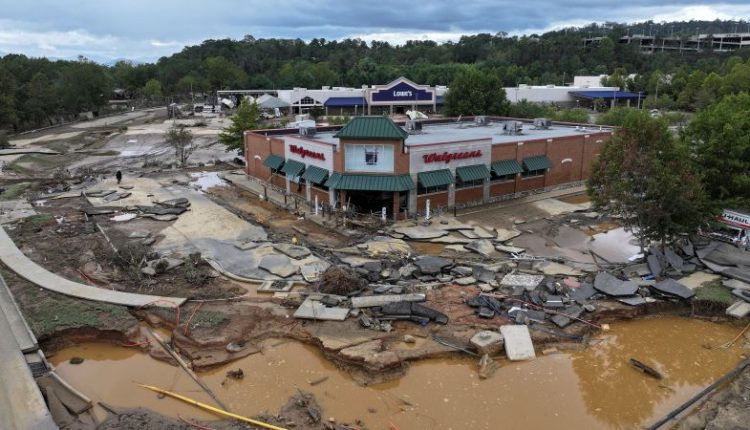The economic successes of Asheville, North Carolina and Tampa, Florida, have been the envy of many cities across the United States.
Both metropolitan areas registered an unemployment rate of 3.1% in August, lower than in their respective home states and nationally, according to Labor Department data. New home construction has been booming to keep up with post-Covid population surges.
But Hurricanes Helene and Milton threaten to reverse those gains. The disasters decimated homes; filled streets with heaps of debris; left many residents without power and safe drinking water; and forced any number of schools and businesses to temporarily close.
Will the economies in hard-hit areas like Asheville and Tampa ever fully recover from the hurricanes? Experiences from past hurricanes may make you more optimistic than you’d expect.
Economic activity plunged in the immediate months following Hurricane Katrina in New Orleans, Hurricane Harvey in Houston and Hurricane Irma in Columbia, South Carolina. But within one year after those hurricanes, among the costliest in the US in the last 20 years, economic activity rebounded to levels similar to or greater than before the hurricanes.
That’s according to a 2020 report from the Government Accountability Office (GAO), the nonpartisan congressional watchdog. The authors of the report measured economic activity through the labor market, housing market, credit market activity and overall income and output in the major metropolitan areas impacted by the respective hurricanes.
But in 28 other metropolitan areas the GAO assessed that were impacted by hurricanes Katrina, Harvey, Irma and Sandy, economic activity didn’t even drop below historic averages in the month of the hurricane or three months after it.
The authors noted that state officials in Texas told them “recovery is faster in larger communities, such as Houston, where local governments have staff who specialize and have experience in disaster management.” Larger communities are also at an advantage because they have more money to “invest in emergency services with significant fixed or upfront costs.”
Local Louisiana officials told the authors that New Orleans’ weak economy post Katrina came from residents permanently relocating as well as “reduction in the local oil and gas industry, a major employer, before the storm.”
What to expect post Helene and Milton
The amount of aid flowing in as well as the amount of insurance coverage by residents will help determine how fast those areas recover, said Adam Kamins, senior director and regional economist at Moody’s Analytics.
Sometimes a rush of federal aid can even help an area boost jobs after a storm, he said.
“Katrina is the classic example where you do not see that unfolding, where people left in very large numbers and federal aid was not as generous as it needed to be,” Kamins said.
People could similarly leave parts of Florida if home and flood insurance rates, which have gone up significantly in recent years, continue to jump post Helene and Milton, Kamins told CNN. That’ll make it harder for the areas to recover economically, but it won’t necessarily cause home prices to plunge because of the reduction in housing supply from the storm, he said.
At the same time, parts of inland North Carolina, where many residents did not have flood insurance, are going to be more reliant on federal aid. That could limit their ability to rebuild.
Especially in Asheville, where tourism has seen a big bump in recent years, Kamins said he’s concerned there could be many hotels and restaurants that choose not to rebuild because they weren’t insured or don’t want to do so now, knowing another storm could wreck havoc again. “That could have significant long term damage.”
Read the full article here

